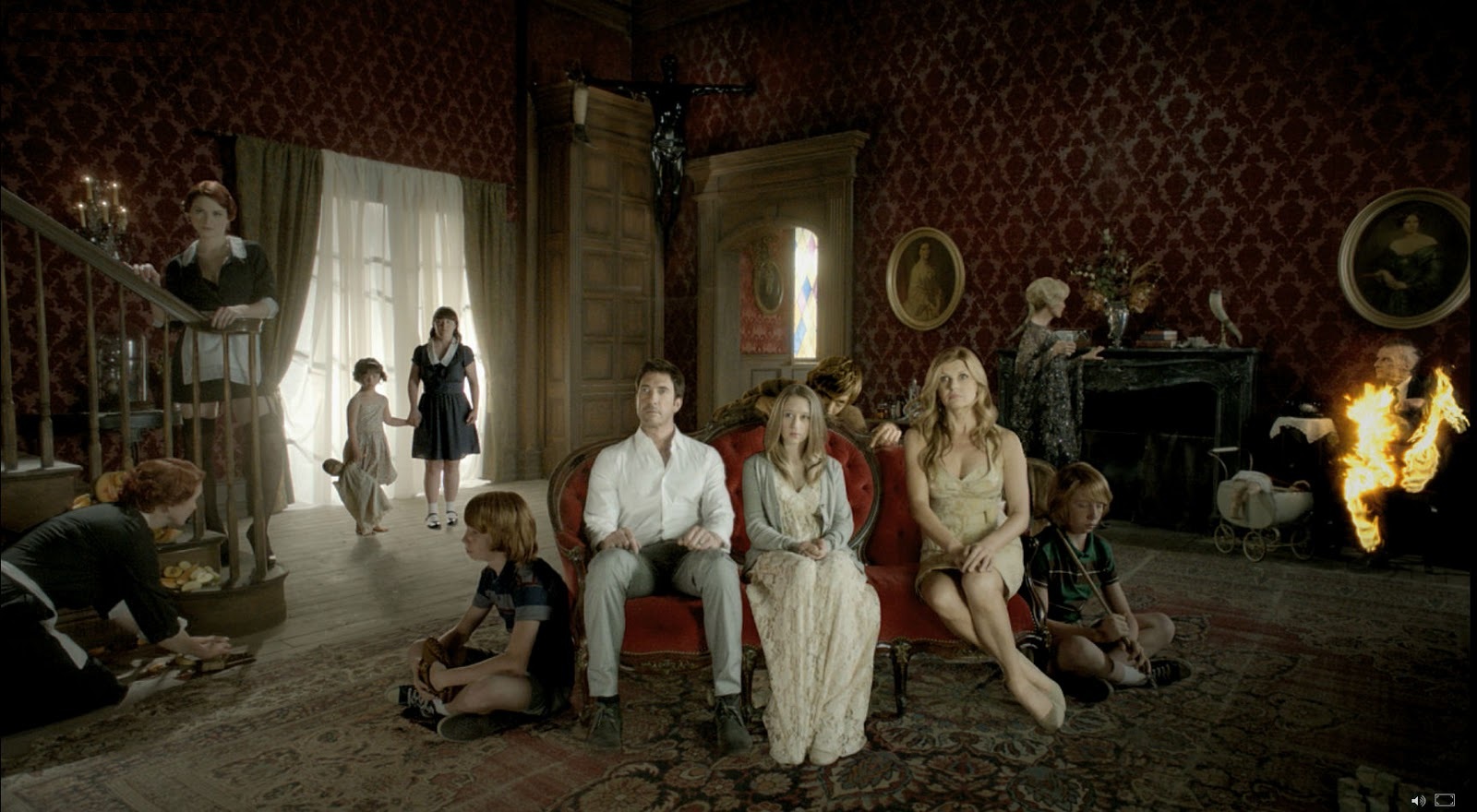But I digress... there are many things that Poe did right when it came to writing short stories, specifically horror stories. I think that hollywood could take a few hints from, hmmm, let's say, The Fall of the House of Usher. So let's take these factors that Poe used and make ourselves a horror movie. Brace yourself.
Okay. the first thing that we need is that creepy setting; one that tells the viewer/reader from the beginning that something is off. In the Fall of the House of Usher, Poe does this by setting the dreary atmosphere of the mansion, along with the strange contradictory detail that the condition of the house is good, although each individual brick shows the effects of decay. That sounds pretty undead, don't you think?
And, with this lovely plot setup that we have, there is only one thing more that we need to get it all going; a reason for the main character to stay in the suspicious place which could cause harm to come upon them. Something that keeps them from just saying "hell no" and hauling ass out of that abandoned house. In the case of the Fall of the House of Usher, the narrator is concerned for Usher's health, and upon his request decides to not abandon his childhood friend in his time of need.
So, we have our creepy setting, our crazy person, and the thing that forces us to stay with our crazy person in the creepy setting. So when the time comes, that moment of blinding, intense terror has to be perfect. Our narrator without even thinking runs for his life out of the House of Usher, only looking back later to see it crumble to it's ruin.
Now, the ending is important. After the House of Usher is gone, the reader pictures the blood red moon, the deep, dark night... was it all a dream? Is the narrator crazy? A mysterious ending is key to a good scary movie. I find that the more I have to think about the movie/ story ending, the more it puzzles me, and the more it entertains me. So get obscure, Hollywood!
What's that? If I could change anything about the typical scary movie, what would it be? Well for starters, PLEASE, for once could y'all please kill off the brunette first? I'm tired of my sister blondes always dying first because of that one bad decision to separate from the group. On a more serious note, I would fix the amount of scary to amount of gore ratio. Just look at Poe; not a single instance of bloodshed is described in the Fall of the House of Usher, and yet, it's still a chilling and thrilling story. So get more creative, and less knife happy.
Thus concludes our adventure with Poe and his incredible gift with the genre of horror.

